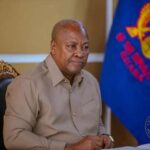Two days after voting in Kenya, key observer missions including teams from the African Union (AU), Commonwealth, the East African Community (EAC) and the European Union (EU) have made statements on their assessment of the electoral process so far.
Generally, most observer groups believe that despite few minor incidences, the process of voting, counting, and tallying at polling stations has been peaceful, transparent, and credible. Former South African President, Thabo Mbeki, head of the AU observer group said that the process was in line with AU policies, and commended the commission and Kenyan citizens on a job well done. Both the AU and Commonwealth missions noted however that the high number of rejected votes suggests the need for more voter education.
Former Ghanaian president John Mahama and head of the Commonwealth mission said the elections on the whole has been conducted in a credible manner. “On the whole it seems the actual performance of the voting machines has not been called into question… I think Kenya must be commended for the technology used during this elections” He added that anyone with grievances should follow the appropriate legal processes.
Many groups have condemned the murder of high-level election official Chris Msando and call for a full investigation into his death. The EU observer mission in their statement congratulated the Independent Electoral and Boundaries Commission (IEBC), but repeated the call for an independent probe into Chris Msando’s murder and how it may have impacted the whole electoral process.
The EU observer mission further urged Kenyans to have patience and restraint in awaiting the final results saying “elections should never be a life and death issue.”
So far, the IEBC has released results from 40 109 out of 40 883, putting incumbent President Uhuru Kenyatta ahead with 54.26% (8,094,351 votes) and opposition leader Raila Odinga in second place with 44.86% (6,692,062 votes).
Here is a review of some of the candidates who contested the 2017 elections:
Uhuru Kenyatta
Uhuru Kenyatta is the flagbearer of the Jubilee Party of Kenya and the son of Kenya’s first President Jomo Kenyatta, and is the 4th and current President of Kenya. After winning the elections in 2013, Kenyatta became Kenya’s youngest president.
Kenyatta is Kikuyu, a Bantu ethnic group. Born into a prestigious and powerful family, he attended St. Mary’s school in Nairobi, and then went to Amherst College in the United States where he studied economics, political science, and government.
Before serving as president, Kenyatta was a deputy prime minister, during which the ICC named him as a suspect of crimes against humanity in the 2007-8 post election violence which claimed over 1,000 lives. The ICC charges threatened to strain foreign relations during his presidency, with many Western countries threatening to cut ties with Kenya. However during his presidency, he has hosted numerous international conferences and world leaders including former United States President Barack Obama.
While in power, Kenya has seen its economy growing at an average of 5% each year, and an increase in foreign investment. The Nairobi-Mombasa railway, one of his major projects funded by the Chinese, is said to contribute to economic growth. However on the other hand, many have criticized him of excessive borrowing, with the nation’s debt at an all time high. His government has also been tagged as corrupt and has been accused of limiting freedom of expression, particularly with the press.
The 55-year-old incumbent leader is seeking re-election on August 8. In his manifesto, he promises more jobs, free public secondary education, the completion of the 57 large-scale dams construction programme, and promote transparency and accountability, amongst many other things. Kenyatta’s biggest rival is Raila Odinga of the National Super Alliance.
Raila Odinga
Raila Odinga is the son of the first vice president of Kenya. His father Jaramogi Oginga Odinga, was one of many politicians who played a huge role in liberating Kenya from British rule.
Born in 1945 in Maseno, Odinga attended Kisumu Union Primary School, Maranda Primary, and later Maranda High School. He went on to study mechanical engineering at University of Leipzig in Germany. After his studies, Odinga was a lecturer at the University of Nairobi. He has also served as a Member of Parliament, as Energy Minister, and as Prime Minister in 2008 under a power-sharing deal to end the post-election violence that saw some 1,300 people killed.
After losing the election in 2013 to Uhuru Kenyatta, Odinga challenged the results in the courts, but the Supreme Court ruled against him. On August 8, Odinga will make his fourth attempt at the presidency of Kenya. He promises to address issues related to healthcare, governance, security & crime, and employment.
Odinga is the flagbearer for the National Super Alliance (NASA) coalition, which includes all of Kenya’s main opposition groups, Odinga – together with his running mate Stephen Kalonzo Musyoka – hopes to end Uhuru Kenyatta’s bid for a second term.














